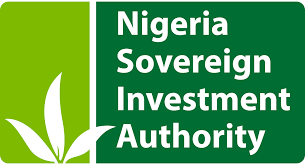The Nigerian Sovereign Investment Authority (NSIA) has introduced a new continental investment platform with a target of raising $50 billion in blended finance to support infrastructure, agriculture, and climate-resilient initiatives across Africa by the year 2030. The major announcement was made during the 2025 edition of the Africa Sovereign Investors Forum (ASIF), which was held in Abuja and attracted a high-profile gathering of African leaders, sovereign wealth fund managers, and private sector players.
President Bola Ahmed Tinubu, represented at the event by Vice President Kashim Shettima, officially opened the forum with a strong call for African unity and cooperation in unlocking long-term capital for the continent’s growth. In his remarks, Shettima stressed the importance of collaboration among African nations, noting that sovereign wealth funds could serve as engines of transformation if properly harnessed.
“The time has come for African nations to harness our collective sovereign wealth as engines for pan-African prosperity,” Vice President Shettima declared.
The Chief Executive Officer of the NSIA, Mr. Aminu Umar-Sadiq, said the new pan-African investment platform will serve as a tool to mobilise capital and deliver high-impact development projects that will benefit future generations. According to him, sovereign wealth funds across Africa have now agreed to commit at least 30 percent of their investment portfolios to climate-resilient projects by 2030.
Umar-Sadiq described the initiative as a major turning point for Africa’s development story. “By uniting our sovereign wealth, we’re not just preserving assets but building Africa’s future,” he said. He also emphasised that the new platform would act as a vehicle for financing long-term transformational projects that cut across infrastructure, energy, agriculture, and environmental sustainability.
This year’s ASIF summit, themed ‘Leveraging African Sovereign Wealth Funds to Mobilise Global Capital for Transformative Development in Africa’, explored how pooled investment and strategic collaboration can attract global investors and improve developmental outcomes for African economies.
A key highlight of the event was a fireside chat between UAC Nigeria’s Group Managing Director, Mr. Fola Aiyesimoju, and the Vice Chairman of TGI Group, Mr. Farouk Gumel. Both executives spoke on the practical challenges of climate adaptation at the community level. Gumel noted that while global leaders talk about climate conferences like COP29, local farmers are more concerned with day-to-day realities like weather patterns and harvest cycles.
“Farmers don’t ask about COP29; they ask if it’s rained enough to plant,” Gumel said. He pointed to recent flooding and changing weather conditions in West Africa as clear signs that agricultural policies must evolve. He also stressed the importance of supporting dry-season farming to cope with these challenges and reduce dependence on increasingly unpredictable rainfall.
Gumel also spoke about the importance of accurate data for agricultural financing, stating, “We always say we don’t have data, but data itself is a commodity. You have to invest in getting that primary data to enable investors to put their money there.” His comments underlined the urgent need to bridge the data gap in order to improve financial inclusion and support targeted interventions in farming communities.
The ASIF 2025 forum also marked the expansion of the organisation’s membership. New members such as Ghana’s Petroleum Fund and Zimbabwe’s Mutapa Investment Fund were welcomed, bringing the total number of participating countries to 17. The growing alliance reflects increased interest in regional economic cooperation and joint development strategies.
At the end of the summit, the ASIF Council agreed to form three dedicated working groups focused on agricultural development, climate finance, and data infrastructure. These teams will develop action plans and frameworks for investment coordination ahead of the next Council meeting, which is expected to take place later in the year.
The NSIA’s initiative is seen as part of a broader movement to shift African economies toward sustainability, resilience, and regional self-reliance. With climate challenges, infrastructure gaps, and food insecurity affecting millions of people across the continent, stakeholders believe that sovereign wealth funds can play a critical role in shaping a new path for Africa’s economic transformation.
